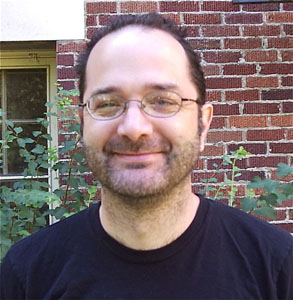I am interested in any and all applications of cognitive science to education and training. I am particularly keen to understand how we can apply what we know in the areas of attention, memory, and psycholinguistics.
ESL Pedagogy, Western Washington University
U.S. Peace Corps Science Pedagogy, and Cross-Cultural Training
Giuliano RJ, Karns CM, Roos LE, Bell TA, Petersen S, Skowron EA, Neville HJ, Pakulak E. (2108) Effects of early adversity on neural mechanisms of distractor suppression are mediated by sympathetic nervous system activity in preschool-aged children. Dev Psychol. 54(9):1674-1686. doi: 10.1037/dev0000499.
Giuliano RJ, Karns CM, Bell TA, Petersen S, Skowron EA, Neville HJ, Pakulak E. (2018) Parasympathetic and sympathetic activity are associated with individual differences in neural indices of selective attention in adults. Psychophysiology. 55(8):e13079. doi: 10.1111/psyp.13079. Epub 2018 Apr 6.
Pakulak E, Hampton Wray A, Longoria Z, Garcia Isaza A, Stevens C, Bell T, Burlingame S, Klein S, Berlinski S, Attanasio O, Neville H. (2017) Cultural Adaptation of a Neurobiologically Informed Intervention in Local and International Contexts. New Dir Child Adolesc Dev. 158:81-92. doi: 10.1002/cad.20226.
Isbell E, Stevens C, Pakulak E, Hampton Wray A, Bell TA, Neville HJ. (2107) Neuroplasticity of selective attention: Research foundations and preliminary evidence for a gene by intervention interaction. Proc Natl Acad Sci U S A. 114(35):9247-9254. doi: 10.1073/pnas.1707241114.
Hampton Wray A, Stevens C, Pakulak E, Isbell E, Bell T, Neville H. (2017) Development of selective attention in preschool-age children from lower socioeconomic status backgrounds. Dev Cogn Neurosci. 26:101-111. doi: 10.1016/j.dcn.2017.06.006.
Pakulak, E., Bell, T., Giuliano, R., Gomsrud, M., Karns, C., Klein, S., Longoria, Z., O’Neill, L., & Neville, H. (2015, November). Effects of an integrated two-generation intervention on stress physiology and brain function for self-regulation in children and parents: preliminary results. Paper presented at the 2015 Association for Public Policy Analysis and Management (APPAM) Fall Research Conference: The Golden Age of Evidence-Based Policy, Miami. https://appam.confex.com/appam/2015/webprogram/Paper12786.html
Neville, H.J., Stevens, C., Pakulak, E., Bell, T., Fanning, J., Klein, S., & Isbell, E. (2013). Family-based training program improves brain function, cognition and behavior in lower socioeconomic status preschoolers. Proceedings of the National Academy of Sciences, 110(29), 12138-12143.
Neville, H., Stevens, C., Pakulak, E., & Bell, T.A. (2013). Commentary: Neurocognitive consequences of socioeconomic disparities. Child Development 16(5), 708-712.
Anderson, D.E., Bell, T.A., Awh, E. (2012). Polymorphisms in the 5-HTTLPR gene mediate storage capacity of visual working memory. Journal of Cognitive Neuroscience 24, 1069-1076. 22332803 [PubMed – in process]
Neville, H., Andersson, A., Bagdade, O., Bell, T., Currin, J., Fanning, J., Heidenreich, L., Klein, S., Lauinger, B., Pakula, E., Paulsen, D., Sabourin, L., Stevens, C., Sundborg, S., and Yamada, Y. (2009). How can musical training improve cognition. In S. Dehaene and C. Petit (eds.). The Origins of human dialog: Speech and music, Odile Jacob, Paris, pp. 277-290.
Neville, H., Andersson, A., Bagdade, O., Bell, T. Currin, J., Fanning, J., Klein, S., Lauinger, B., Pakulak, E., Paulsen, D., Sabourin, L., Stevens, C., Sundborg. S., and Yamada, Y. (2008). Effects of music training on brain and cognitive development in under-privileged 3- to 5-year-old children: Preliminary results. In C. Asbury and B. Rich (Eds.). Learning, arts, and the brain. Organized by M. Gazzaniga. Dana Press; New York, pp. 105-116.
Bell, T., Batterink, L., Currin, J., Pakulak, E., Stevens, C., and Neville H. (2008) Genetic influences on selective auditory attention as indexed by ERPs. Cognitive Neuroscience Society 15.
Anderson, M.C., & Bell, T. (2001). Forgetting our facts: The role of inhibitory processes in the loss of propositional knowledge. Journal of Experimental Psychology: General, 130, 544-570.
Bell, T. (2005). Individual Differences in Memory Inhibition, Unpublished doctoral dissertation, University of Oregon, Eugene.
Mayr, U., & Bell, T. (20016). On how to be unpredictable: Evidence from the voluntary task-switching paradigm. Psychological Science 17(9):774-80.

